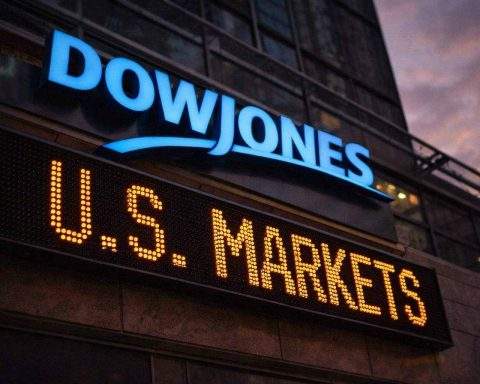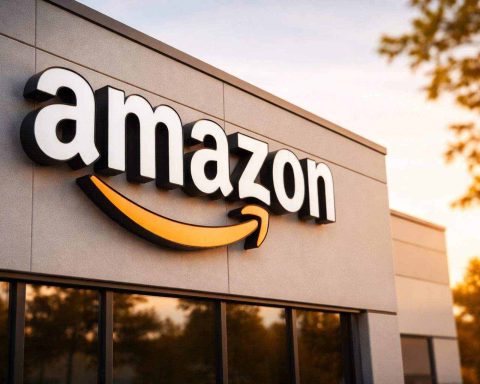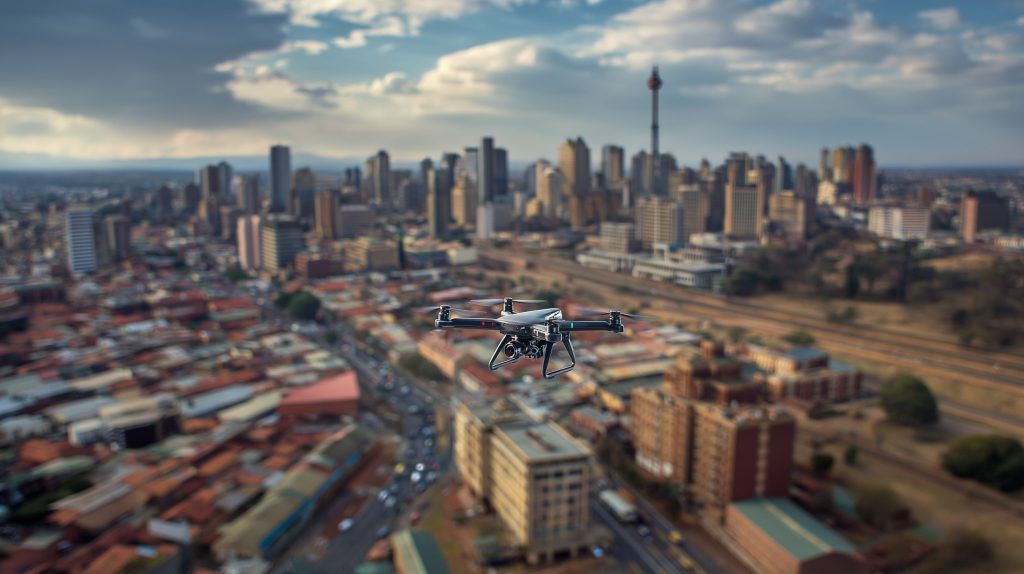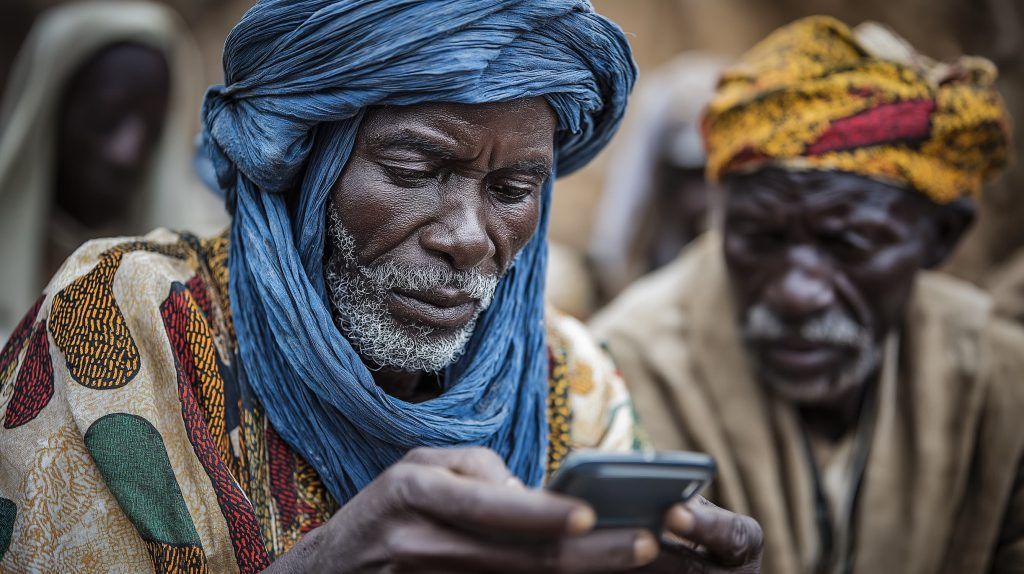Key Facts:
- Infrastructure Boosts: SpaceX launched 24 Starlink satellites into polar orbits, expanding high-latitude coverage spaceflightnow.com. Amazon’s Project Kuiper plans to begin satellite internet service by late 2025 pymnts.com. Meta and Kenya’s Safaricom are investing $23M in a new subsea cable between Kenya and Oman techweez.com, while Djibouti Telecom will extend its DARE1 cable down Africa’s east coast to South Africa (service by 2028) 1 .
- Mobile Connectivity: In India, Reliance Industries and Meta launched a $97M joint venture to build an AI-powered enterprise connectivity platform mobileworldlive.com. Pakistan confirmed plans for a delayed 5G spectrum auction by Dec 2025 bez-kabli.pl. South Africa’s MTN will supply 1.2 million 4G smartphones at about 99 rand (~$5) each to migrate users off 2G/3G networks 2 .
- Outages & Shutdowns: A nationwide Verizon wireless outage (Aug 30) left millions of U.S. customers with phones in “SOS only” mode for hours bez-kabli.pl. Pakistan’s government extended a 3G/4G blackout in Balochistan (started Aug 30) for “law and order” reasons, keeping millions offline bez-kabli.pl. Iraq’s Ministry of Communications scheduled two-hour internet shutdowns (6–8 am local time on Sept 1–2) during national exams 3 .
- Censorship and Regulation: On Sept 1, Russia enacted sweeping internet controls: fines for searching any banned “extremist” content (including via VPNs), bans on promoting VPNs, mandatory pre-installation of the state “MAX” messenger and Russia’s RuStore app on all smartphones binance.com reuters.com. Critics warn these moves will stoke fear and self-censorship 4 .
- Bridging the Digital Divide: The ITU reported that $2.6–2.8 trillion is needed by 2030 to connect the ~2.6 billion people still offline caribbeannewsglobal.com. The UN’s Partner2Connect coalition has already secured ~$51B in pledges toward a $100B goal itu.int. NGOs and telcos launched new initiatives: e.g. the Internet Society funded nine community-led connectivity projects across Africa and Latin America news.fundsforngos.org. MTN South Africa’s subsidies (offering $5 phones) aim to ensure “no one is left behind in the digital era” as 2G/3G networks phase out 2 .
Infrastructure and Connectivity Projects
Satellite broadband saw major gains. SpaceX’s August 29 launch of 24 Starlink satellites into polar orbit—its fourth California launch that month—aims to blanket high-latitude regions (Alaska, Scandinavia, Antarctica) with low-latency internet. As Spaceflight Now reported, “SpaceX launched 24 Starlink broadband satellites… as it rolls out the service to more countries and territories around the world” spaceflightnow.com. Meanwhile Amazon’s Project Kuiper is gearing up: head Rajeev Badyal confirmed a U.S. launch by late 2025 offering up to 1 Gbps speeds pymnts.com. (“If it were cost-effective, it would have been done by now. But it isn’t,” he cautioned of the immense investment required 5 .)
Undersea cables are also expanding. On Sept 2, Meta and Kenya’s Safaricom announced a new $23 million cable linking Kenya to Oman. The project – Meta’s infrastructure affiliate Edge Network Services and Safaricom – “is set to cut Internet costs, improve access, and boost resilience in East Africa’s fast-growing digital economy” techweez.com. This will give East Africa an alternate international gateway and more bandwidth independence. Likewise, Djibouti Telecom unveiled plans to extend its DARE1 cable from Kenya down to Tanzania, Mozambique, Madagascar and South Africa. The extension (to be built 2026–2028) will create new landing points along Africa’s east coast, “enhanc[ing] the region’s growing digital economy by delivering scalable international bandwidth” and improving resilience thefastmode.com 6 .
On land, telcos are preparing for next-generation networks. In India, Reliance Industries (owner of Jio) and Meta formed a ₹8.6 billion (≈$97M) joint venture to build an AI-driven enterprise connectivity platform. Reliance’s Mukesh Ambani said this tie-up “brings our vision of providing AI to every Indian and enterprise to life” mobileworldlive.com. In Africa, MTN South Africa is helping the poor upgrade phones: it will distribute 1.2 million 4G smartphones for just 99 rand (≈$5.42) each to low-income prepaid users, ahead of a 2027 2G/3G shutdown reuters.com. This effort is explicitly “to support digital adoption for low-income households” as legacy networks sunset reuters.com. Such projects indicate a global push to reach underserved areas through a mix of satellite, fiber and community networks.
Government Policies and Censorship
Several governments enacted new regulations affecting internet access. In Russia, Sept 1 marked the enforcement of broad internet control laws. All new smartphones must now come pre-installed with the state-backed “MAX” messenger and the domestic RuStore app store reuters.com. Strict penalties were also introduced for accessing or searching for any content labeled “extremist,” even via VPN. Reuters explains that Russians can face fines (up to 5,000 rubles) simply for searching banned materials online reuters.com. Digital-rights groups decry the vagueness: Justice League chair Yekaterina Mizulina warned vague extremism definitions “could spark fraud, blackmail and extortion,” while Roskomsvoboda founder Sarkis Darbinyan said the law is meant to “create fear” and will only increase self-censorship reuters.com 4 .
In Pakistan, authorities continued a controversial connectivity blackout in Balochistan province. On August 30 the government shut off all 3G/4G mobile data there “citing security threats” from insurgents bez-kabli.pl. Courts ordered the ban lifted, but officials extended the shutdown into early September for “law and order” reasons bez-kabli.pl. The move left millions offline in a region that had seen only spotty service.
In Iraq, the Ministry of Communications announced two-hour internet suspensions during national exam periods. Official notices directed all international network links to go offline from 6:00–8:00 (UTC+3) on Sept 1 and 2, 2025 getoutlinevpn.com. The government said this was to prevent cheating on grade-level exams – a practice that has sparked debate about educational fairness and access 3 .
No major new restrictions were reported in China or the EU during these days, though policymakers continue broader digital oversight. (For example, the EU signals it will enforce its new Digital Services Act despite U.S. pressure chinadailyasia.com.) In summary, global internet governance is sharply polarized: some states invest in connectivity, while others tighten surveillance and content controls.
Internet Outages and Shutdowns
Reported outages during Sept 1–2 were largely regional but impactful. In the U.S., a software glitch knocked out millions of wireless connections. Over the Labor Day weekend, Verizon customers from coast to coast found their phones stuck on “SOS only.” According to CBS News, at its peak the outage generated over 23,000 trouble reports. Verizon engineers scrambled to fix the issue, apologizing as service slowly returned bez-kabli.pl. One frustrated user noted, “All my L.A. friends… don’t have service either,” underscoring how dependent users are on uninterrupted mobile internet bez-kabli.pl. This was the third major Verizon outage of 2025, raising questions about network reliability.
In developing regions, connectivity has been disrupted for security reasons. As noted, Pakistan’s Balochistan remains under a mobile internet blackout bez-kabli.pl. In addition, some rural or conflict zones experienced localized outages (e.g. damage to undersea cables can impact remote islands – Taiwan’s government recently activated backups after cable malfunctions cut off the Matsu Islands reuters.com reuters.com, though those incidents preceded September).
Humanitarian crises also cause internet loss. Last summer, Gaza was cut off entirely after an undersea cable was severed in conflict; aid agencies warned relief operations were paralyzed without internet english.aawsat.com english.aawsat.com. (Though this attack occurred in June, it highlights how warfare can knock out connectivity.) By contrast, Cuba began restoring service after a May outage blamed on equipment failure reuters.com. These incidents show how both technical faults and political actions can disrupt access unpredictably.
Bridging the Digital Divide
Closing global connectivity gaps remains an urgent challenge. The ITU’s Connecting Humanity Action Blueprint (published Sep 2, 2025) estimates it will take $2.6–2.8 trillion by 2030 to bring meaningful internet access to everyone caribbeannewsglobal.com. Most of that (about $1.5–1.7T) must fund infrastructure like fiber, 4G/5G towers, and satellites for remote areas caribbeannewsglobal.com. Others are for affordability (nearly $1.0T to lower device/service costs) and digital skills training caribbeannewsglobal.com. Doreen Bogdan-Martin, ITU’s Secretary-General, emphasized that “digital connectivity means creating opportunities for education, jobs, and access to essential services that can transform lives” caribbeannewsglobal.com. Likewise, Saudi regulator Haytham AlOhali noted the 5× jump from 2020’s estimate “underscores the urgency for international cooperation, collective investment… if we are to achieve… universal connectivity” 7 .
Governments and organizations are responding. At a recent World Summit, ITU’s Partner2Connect coalition announced an additional $4.8B in commitments, bringing total pledges to nearly $51B (over halfway to its $100B by-2026 goal) itu.int. These pledges include major corporate and government initiatives (e.g. AT&T committed another $3B to connect 25 million U.S. Americans by 2030) 8 .
Grassroots programs are also multiplying. The Internet Society and its Foundation announced nine Connecting the Unconnected grants across seven countries news.fundsforngos.org. Funded projects range from fiber backbones in Mexican highlands and Colombian shantytowns, to community networks in Senegal, Kenya, Uganda, Malawi and Zimbabwe news.fundsforngos.org. These community-led efforts aim to tailor connectivity to local needs, an approach championed by digital-rights advocates. Elizabeth Anderson of the Digital Poverty Alliance (U.K.) notes that true inclusion means lowering barriers for those who want to go online: “We want to break down barriers so that people who do want to be online don’t face disadvantage or discrimination… it’s about empowering people who… don’t feel confident getting online”. The DPA is campaigning to ensure no one is left behind as societies digitize. Anderson warns that cutovers from analog (TV, radio) to digital platforms can isolate vulnerable populations, sometimes with tragic consequences capacitymedia.com 9 .
On the consumer side, market trends also support inclusion. Lower data prices and aggressive promotions (e.g. discounted plans and handset subsidies in the US bez-kabli.pl) are pushing more users online. In Africa, MTN’s subsidized smartphones are a prime example: “no one is left behind in the digital era,” it said reuters.com. All these efforts signal recognition from both public and private sectors that universal access is a global priority.
Industry and Executive Statements
Tech leaders and NGOs alike have issued statements highlighting the stakes. Amazon’s Kuiper head Rajeev Badyal bluntly noted that low-cost universal connectivity remains elusive: “If it were cost-effective, it would have been done by now. But it isn’t,” he said pymnts.com. T-Mobile’s business chief Mo Katibeh described the new 5G-plus-satellite plan: “We’re giving businesses the advanced tools they need to connect seamlessly… virtually anywhere they are” reuters.com. These remarks underscore industry efforts to chase coverage to every corner.
Digital-rights advocates stress caution. Roskomsvoboda’s Sarkis Darbinyan warned of rising self-censorship under new Russian laws reuters.com. Meanwhile, UN officials frame connectivity as a human-rights and development issue. Bogdan-Martin (ITU) hailed the latest investment pledges as a “huge win for global connectivity” achieved by multilateral effort itu.int. She urges more pledges: “Closing the digital divide requires a team effort,” she said itu.int. Likewise, Anderson (DPA) emphasized that digital inclusion is “not a luxury; it’s a serious societal challenge” capacitymedia.com requiring action from governments and industry alike.
Political figures are also weighing in indirectly. Reuters notes that the U.S. has even considered sanctions against EU officials over perceived overreach by Europe’s Digital Services Act – illustrating how internet regulation can become a flashpoint in geopolitics ceotodaymagazine.com. And in the Middle East, agencies warn that stifling internet freedom (e.g. Iran’s funding cuts to anti-censorship tools) risks further isolating populations. washingtonpost.com washingtonpost.com (State Dept. staff lament that halting funding for VPN projects could “cripple” Iranians’ ability to bypass censorship 10 .)
Investments and Strategic Moves
Telecom and tech giants are making major strategic bets. In the U.S., AT&T closed a $23 billion deal for EchoStar’s mid-band spectrum, signaling a long-term push to boost 5G and future satellite services bez-kabli.pl. Verizon quietly announced the end of many longtime plan perks by Sept 2025, while competitors like Mint Mobile (backed by Ryan Reynolds) are aggressively cutting prices to seize customers bez-kabli.pl bez-kabli.pl. In Asia, Japan Post Bank revealed it will launch a digital yen (CBDC) by 2026 reuters.com, a development that could reshape financial internet use (though not directly an access issue).
Cloud and content companies also influence connectivity: Meta continues huge infrastructure investments (backer of 2Africa and a planned 50,000 km intercontinental cable techweez.com), Facebook’s parent is building data centers across Africa, and Google is partnering with Reliance on AI-cloud infrastructure in India mobileworldlive.com. On the other hand, privacy and security concerns are rising – South Korea fined SK Telecom $97M for a data breach, citing insufficient cybersecurity investment bez-kabli.pl. Regulators globally are warning that connectivity must be balanced with trust and user protection.
Finally, global forums are focusing on these themes. September’s UN General Assembly will include a proposed Global Digital Compact, and ITU/WSIS+20 meetings stress “digital pathways for all” to achieve the Sustainable Development Goals. As one summit outcome put it, “leaders must accelerate bridging digital divides, promote inclusive innovation, and ensure internet freedoms” – lest nearly one-third of humanity remain cut off caribbeannewsglobal.com 11 .
Sources: Coverage is drawn from news reports and press releases (Reuters, ITU, TechCrunch, Reuters, UN agencies, and industry media) published September 1–2, 2025 pymnts.com reuters.com bez-kabli.pl itu.int caribbeannewsglobal.com mobileworldlive.com, among others. Each statement above is linked to its source for verification.






